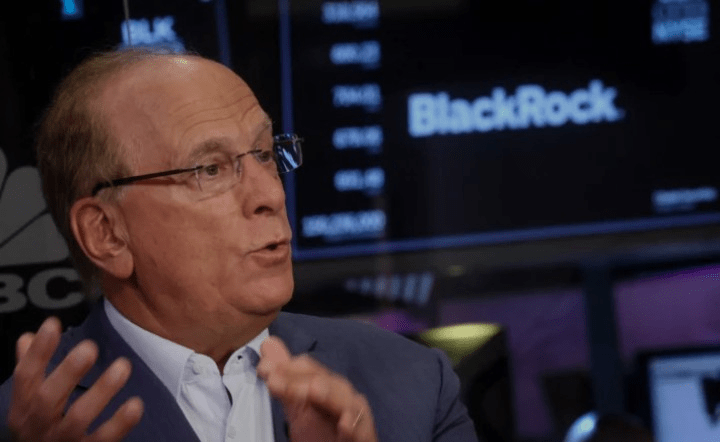
The CEO of BlackRock, Larry Fink, has once again expressed his views on cryptocurrencies, adopting a more cautious stance and revisiting statements he made in October 2017, when he even classified Bitcoin as a 'money laundering index.'
In an interview with CBS on Sunday, Fink said: 'At the time, I stated that Bitcoin was the territory of money launderers and criminals.'
He explained that his market experience led him to rethink those convictions: 'The market teaches that we always need to revisit our assumptions. Today I see that cryptocurrencies have a role, just like gold — that is, as an alternative asset.'
Even so, the executive issued a warning to investors: “For those seeking diversification, it is not a bad asset, but I see no reason for it to be a central part of the portfolio.”
BlackRock, the world's largest asset manager, with approximately $12.5 trillion under management, launched in 2024 one of the first spot Bitcoin ETFs in the U.S., after SEC approval. The iShares Bitcoin Trust is currently the largest cryptocurrency ETF, with over $93.9 billion in assets.
New view on Bitcoin
Fink's change in tone over the years parallels a broader easing of Wall Street's stance on cryptocurrencies. He was part of a group of CEOs who previously completely rejected Bitcoin.
In 2017, he called the currency a “money laundering index,” while JPMorgan Chase CEO Jamie Dimon described it as “a fraud” and said that those who owned it were “stupid,” comparing the asset to the tulip mania in the Netherlands in the 1630s.
Since then, the climate has changed, with Fink adopting a more conciliatory tone starting in 2023. Large financial companies, from asset managers to investment banks, are gradually entering the cryptocurrency sector, driven by investor demand — even with warnings about volatility and regulatory risks.
In a letter to investors earlier this year, Fink himself noted that half of the demand for BlackRock's Bitcoin ETF came from retail investors — and that three-quarters of those investors had never purchased an iShares product before.
Sygnum's Chief Investment Officer, Fabian Dori, told Decrypt that, especially after the re-election of U.S. President Donald Trump, the adoption of crypto assets shifted from institutional involvement to institutional adoption.
“If there was still a need for confirmation of the growing institutional adoption, it was likely provided by BlackRock CEO Larry Fink, pointing to Bitcoin as a possible substitute for the dollar as a global reserve currency should the U.S. debt situation spiral out of control,” he stated. “These developments elevated Bitcoin's dominance — the share of Bitcoin's market value relative to the total cryptocurrency market — to a level not seen in years.”
Traditional global asset managers, such as BlackRock and Fidelity, have already included Bitcoin in the strategic allocation of some of their investment products. Meanwhile, companies like Tesla, Strategy, and Metaplanet have incorporated Bitcoin into their corporate strategies as a hedge against inflation.
Dori added that institutions are interested in three main use cases: specific crypto assets as an alternative store of value, as an alternative means of payment, and as next-generation infrastructure enabling economies based on decentralized applications — that is, within the Web3 ecosystem.
“The rise in macroeconomic uncertainty, geopolitical tensions, and the increasing risk of currency devaluation are factors that reinforce Bitcoin's attributes as a safe haven or store of value,” he said.
Even so, not everyone is convinced.
Last week, the British investment platform Hargreaves Lansdown warned its users to avoid Bitcoin, calling it an asset with “no intrinsic value.” In a statement to clients, the company said that cryptocurrencies “should not be used as a basis to achieve clients' financial goals.”
But companies continue to feel the pressure to meet customer demand for this type of product. Hargreaves Lansdown itself, which manages $226.8 billion (£170 billion) in assets, stated that it will still allow qualified investors access to new exchange-traded crypto asset securities in the UK, despite the warning.
Bitcoin is trading above $114.8 thousand this Monday, with a 1% increase in the last 24 hours, according to CoinGecko. The price recovery comes after a sharp drop on Friday, when the value plummeted from $121 thousand to $109 thousand in a few hours, triggering nearly $20 billion in liquidations — including about $16.7 billion in long positions.


